Round Up: 5 Lubes for Wet Weather Riding
Whether you meticulously clean and lube your bike after every wet-weather ride, or your bike gets ridden hard and put away wet (that's us, sorry), your drivetrain needs extra care in the winter. We take a quick look at five different chain lube options for wet weather riding.
*SPONSORED: this article is supported by Pedros, Maxima, Whistler Performance Lubes, Joes No Flats and Muc Off.
Pedro's Enduro Premium Wet Lube
Manufacturer's Notes
• Extreme lasting performance with less mess in mixed to wet conditions.
• Proprietary lubricant package designed to optimize the chain surface coating characteristics and maximize performance for the intended riding conditions.
• Proprietary lubricant package designed to optimize the chain surface coating characteristics and maximize performance for the intended riding conditions.
• Elevates efficiency, runs quiet, runs clean, reduces wear, and fully waterproof.
• Low odor, safe, biodegradable, natural lubricants, and plant-based ingredients.
• $12.50 USD
• pedros.com
• Low odor, safe, biodegradable, natural lubricants, and plant-based ingredients.
• $12.50 USD
• pedros.com
Maxima Synthetic Chain Guard
Manufacturer's Notes
• 100% Synthetic formula
• Waterproof
• Quiets chain & reduces drivetrain resistance
• Long lasting
• Waterproof
• Quiets chain & reduces drivetrain resistance
• Long lasting
Whistler Performance Lubes Wet Chain Lube
Manufacturer's Notes
• Bio-based formula made with natural ingredients is PTFE-free, petroleum-free, non-toxic and environmentally friendly
• Proprietary Emulsifite Technology provides lubricant with dynamic cleaning abilities and prevents black goop build up long-term
• The formula has been optimized for pedal efficiency, anti-wear, and longevity
• Proprietary Emulsifite Technology provides lubricant with dynamic cleaning abilities and prevents black goop build up long-term
• The formula has been optimized for pedal efficiency, anti-wear, and longevity
• Resists rainwater but activates under high-pressure water, so accumulated dirt and grime is easy to spray off with a hose
• Made in Canada
• $13.99 CDN
• wplbike.com
• Made in Canada
• $13.99 CDN
• wplbike.com
Joes No Flats Eco-Nano Wet Lube
Manufacturer's Notes
• Super clean, water-based, eco-friendly chain lube
• Uses nano-particles to reduce friction and increase chain life
• Works through mud, rain, creek crossings, etc. (tested in the rain-forest of Appalachian Mountains)
• Uses nano-particles to reduce friction and increase chain life
• Works through mud, rain, creek crossings, etc. (tested in the rain-forest of Appalachian Mountains)
• Award-winning eco-friendly chain lube... the forest will thank you!
• $10.90 USD for 125ml. Also comes in 30ml bottles to keep in pack, MSRP: $5:50
• joes-no-flats.com, bikefettish.com
• $10.90 USD for 125ml. Also comes in 30ml bottles to keep in pack, MSRP: $5:50
• joes-no-flats.com, bikefettish.com
Muc-Off Wet Lube
Manufacturer's Notes
• Ensures silky smooth gear shifts & reduces friction
• Repels water for chain and component protection
• Excels in wet, muddy riding conditions
• Vegetable-oil-based formula for eco-protection
• Repels water for chain and component protection
• Excels in wet, muddy riding conditions
• Vegetable-oil-based formula for eco-protection
What wet-lube do you use in the rainy season?
Author Info:
Must Read This Week
How to Watch the 2024 Mountain Bike World Cup [Update: Staylive Offering Access in New Zealand, South Africa & More]
59645 views
59645 views
Sign Up for the Pinkbike Newsletter - All the Biggest, Most Interesting Stories in your Inbox
PB Newsletter Signup
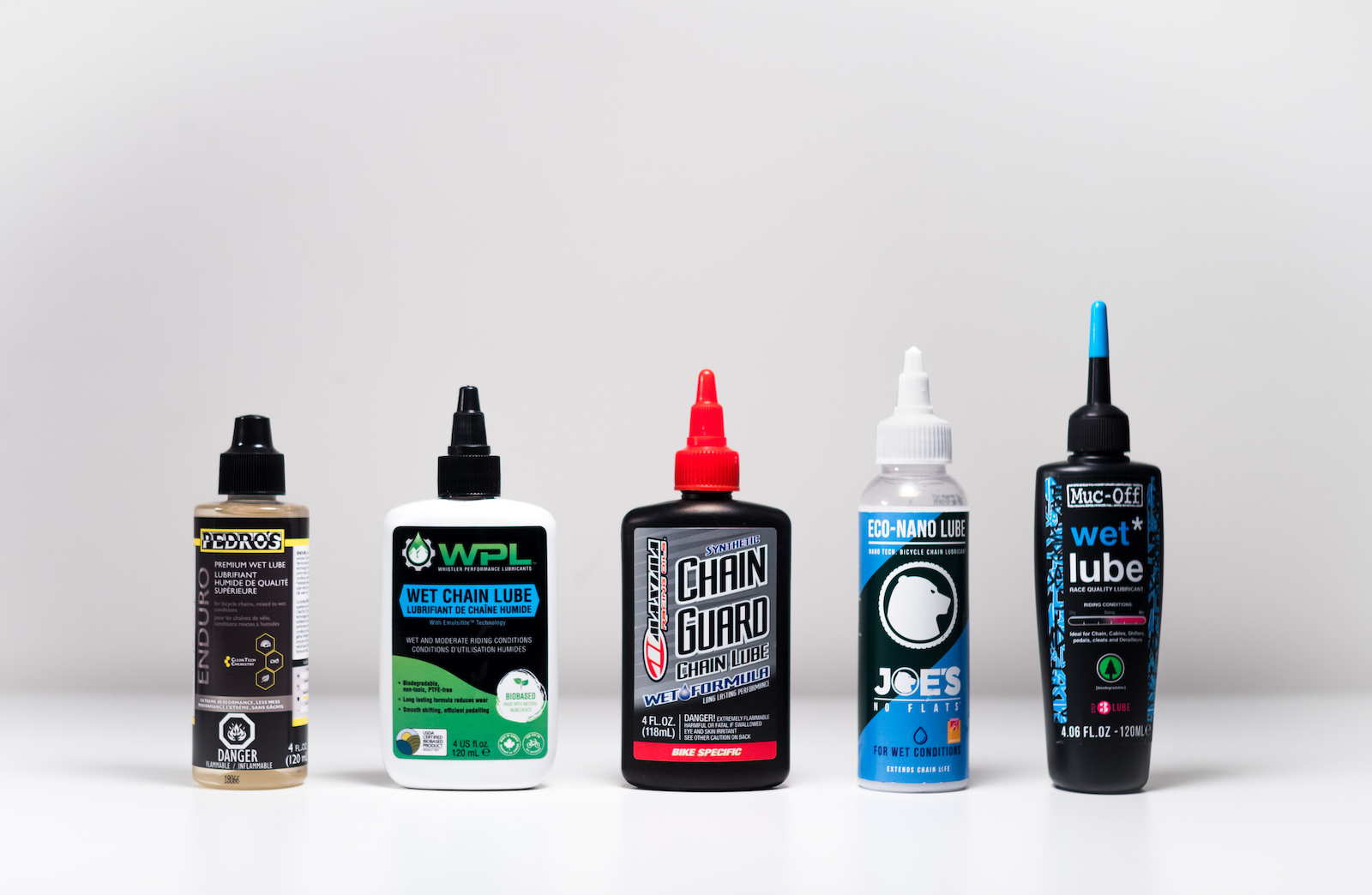
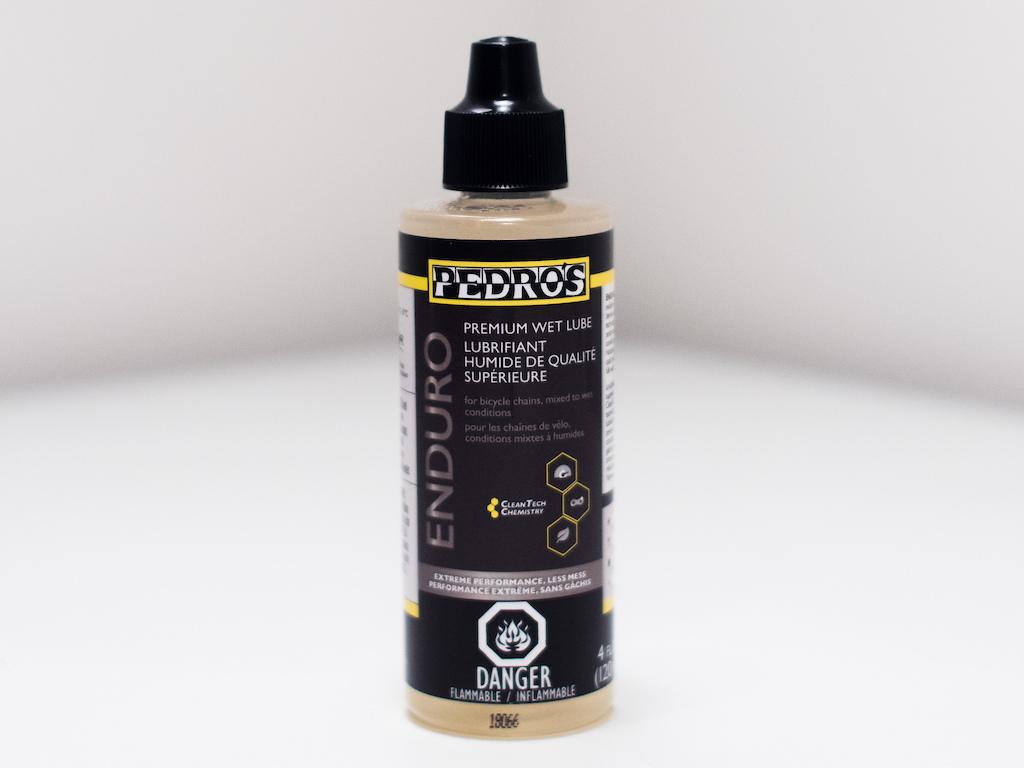
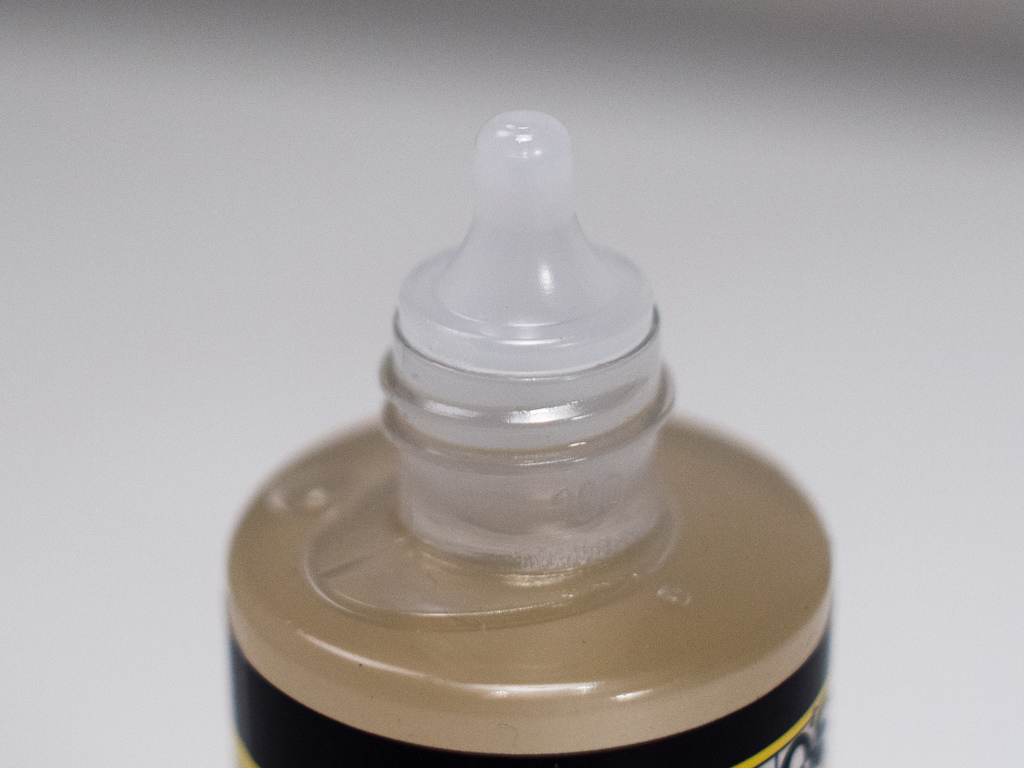
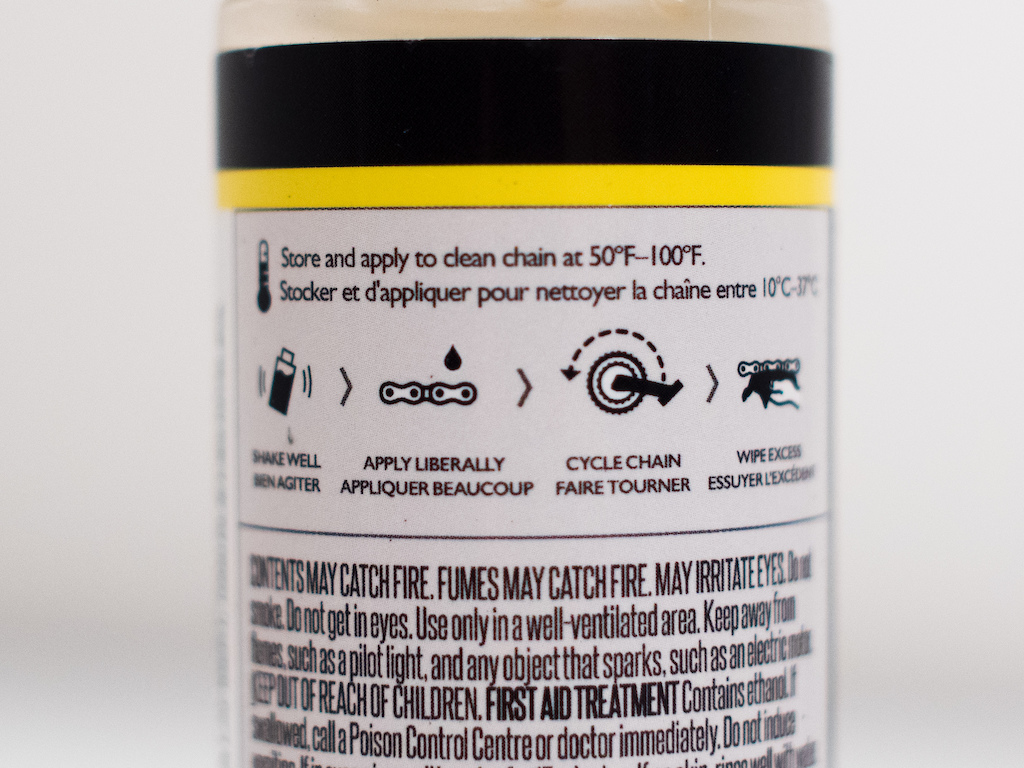
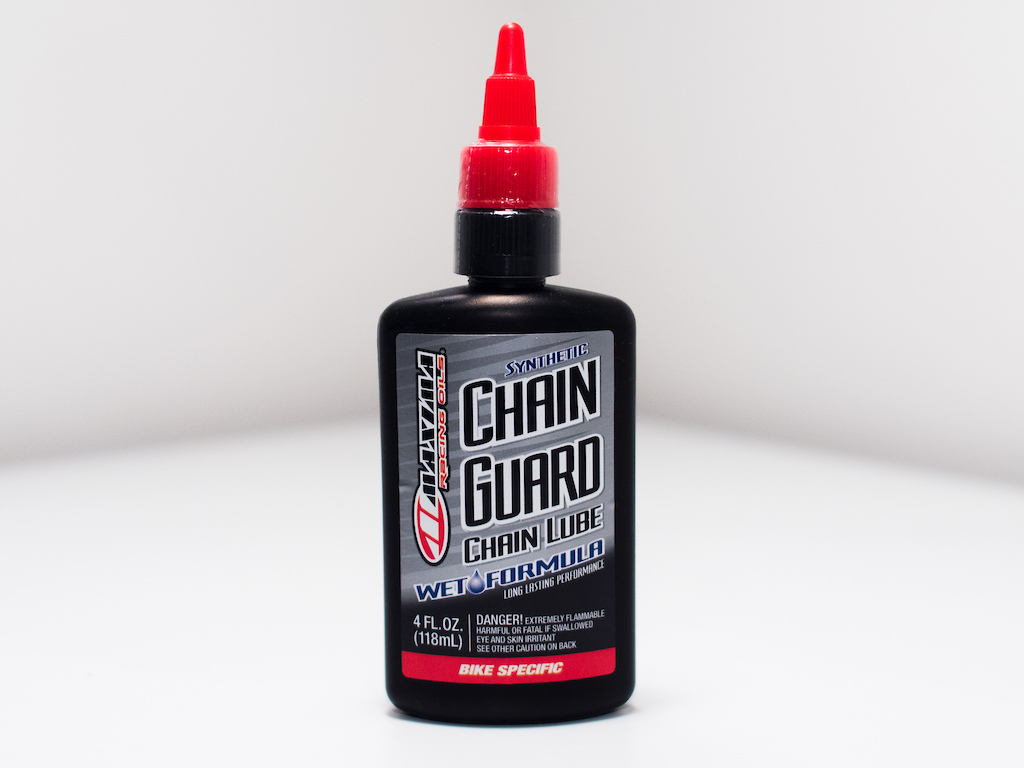
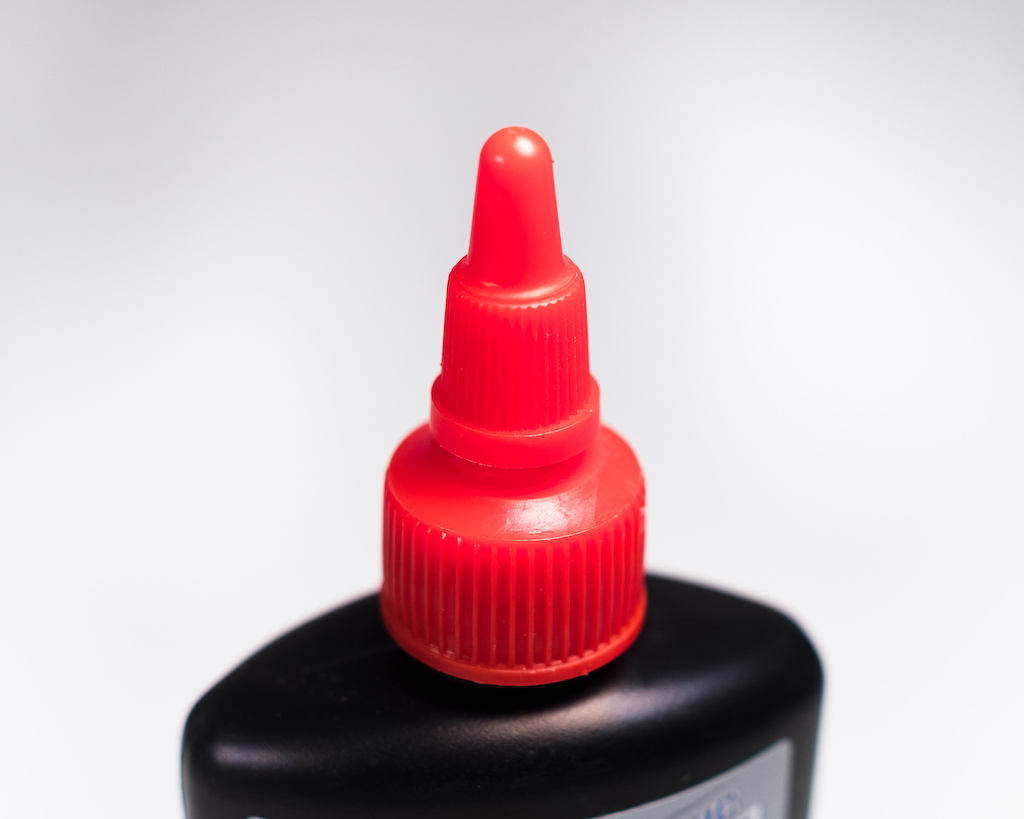
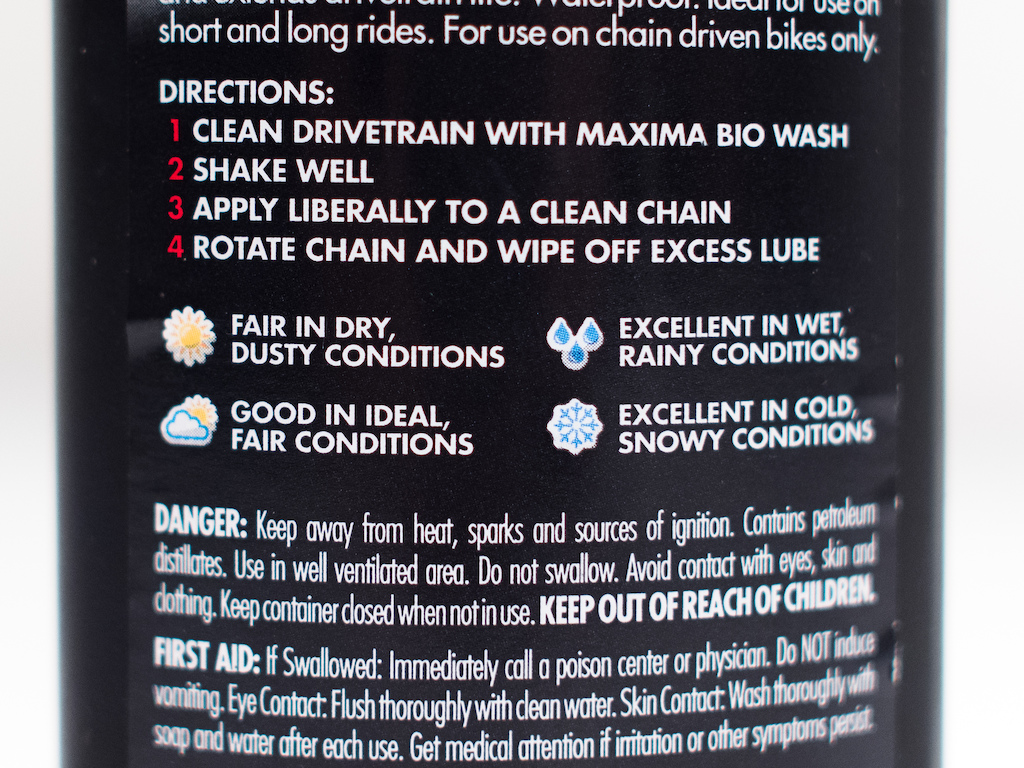
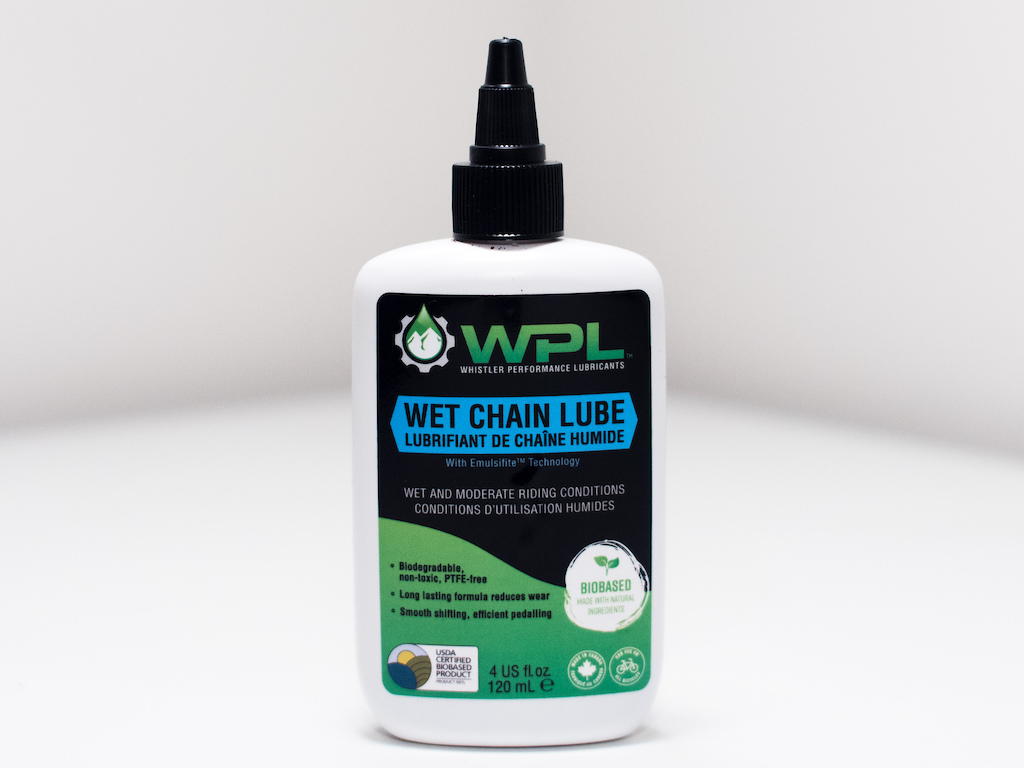
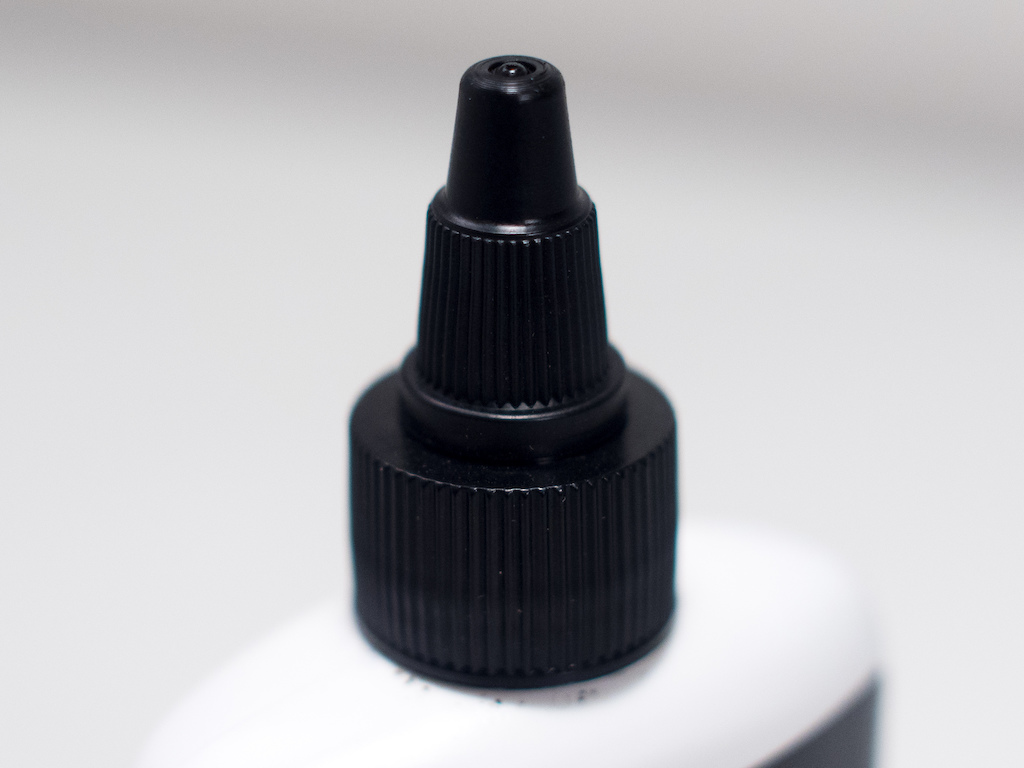
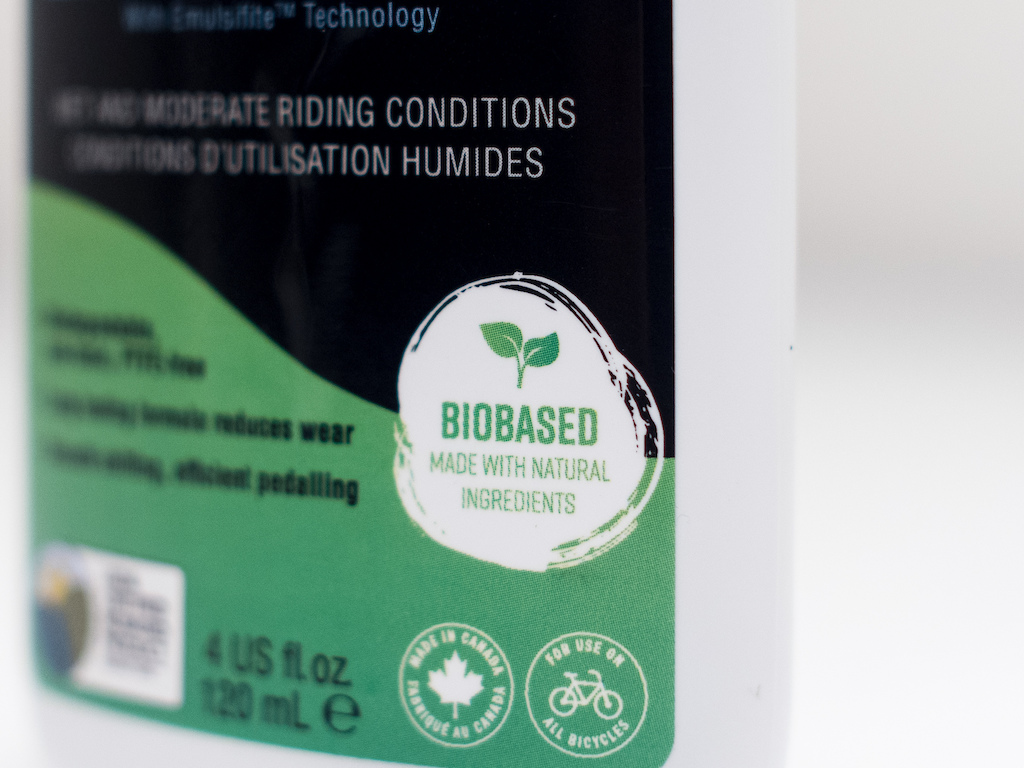
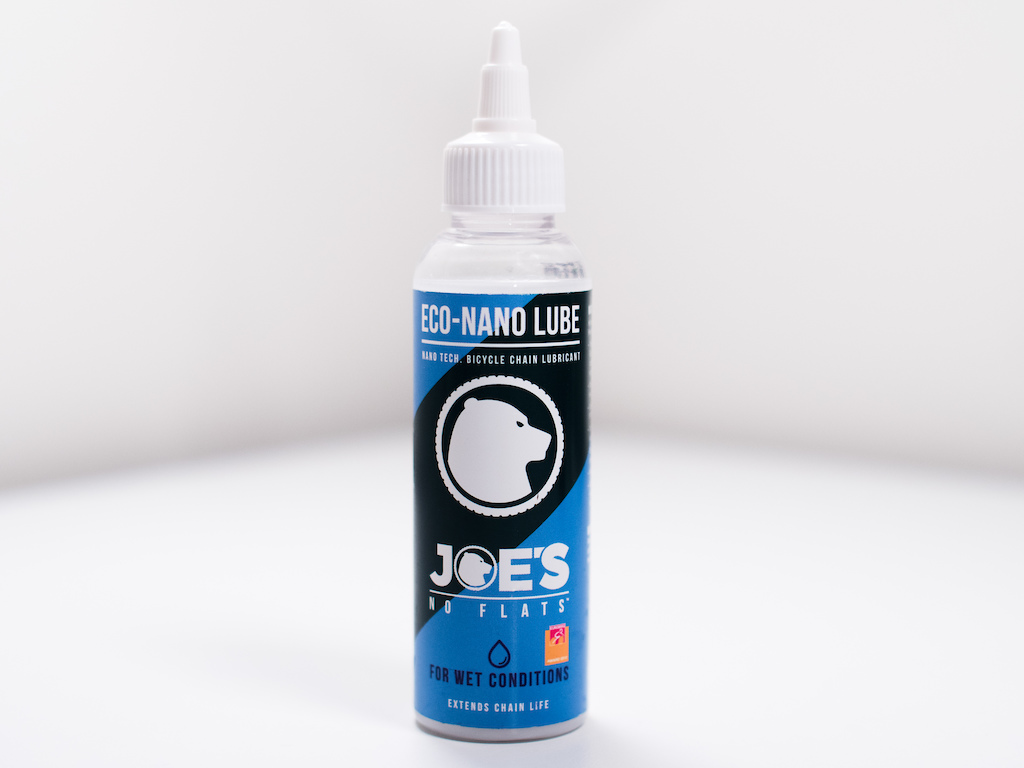
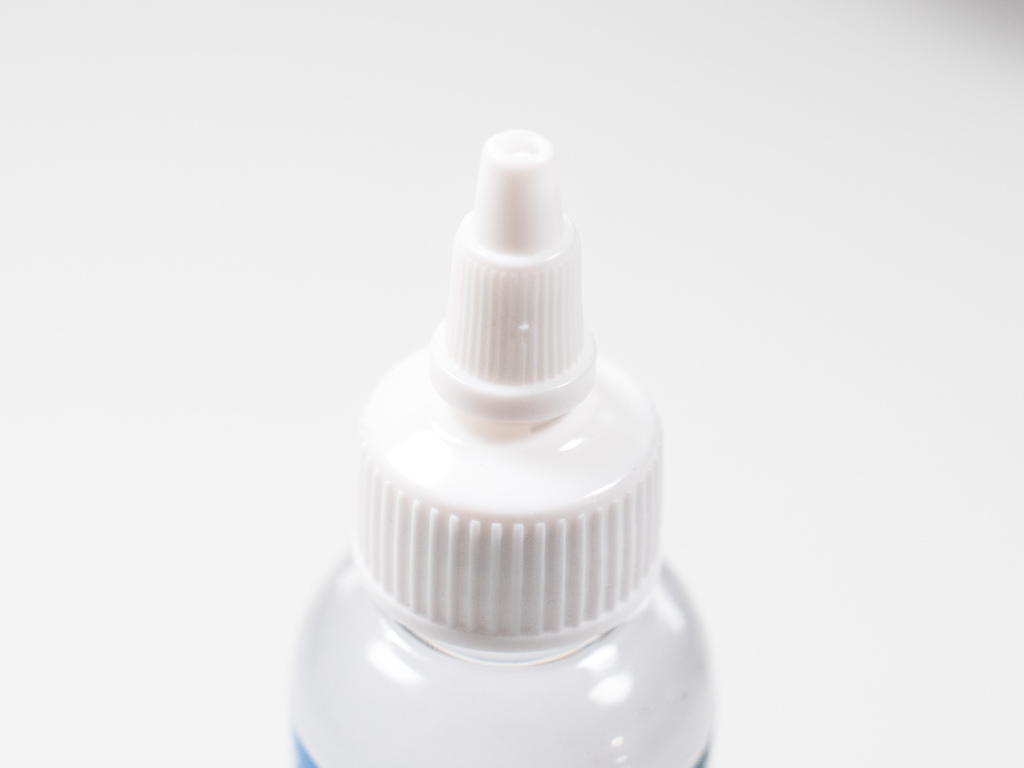
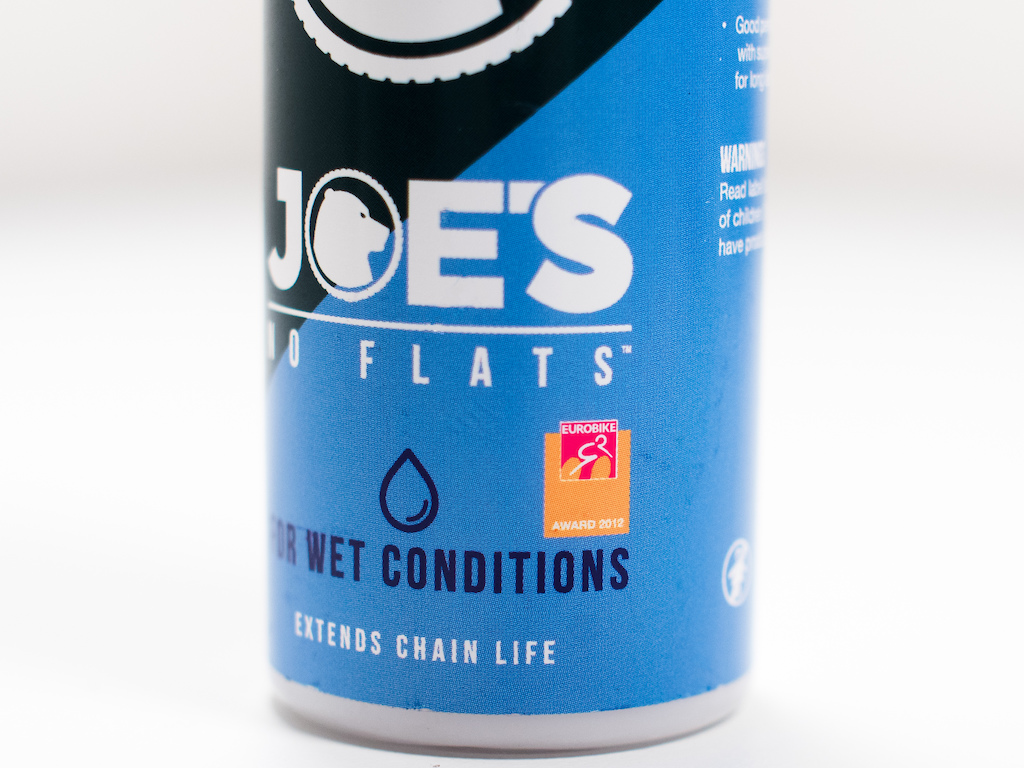
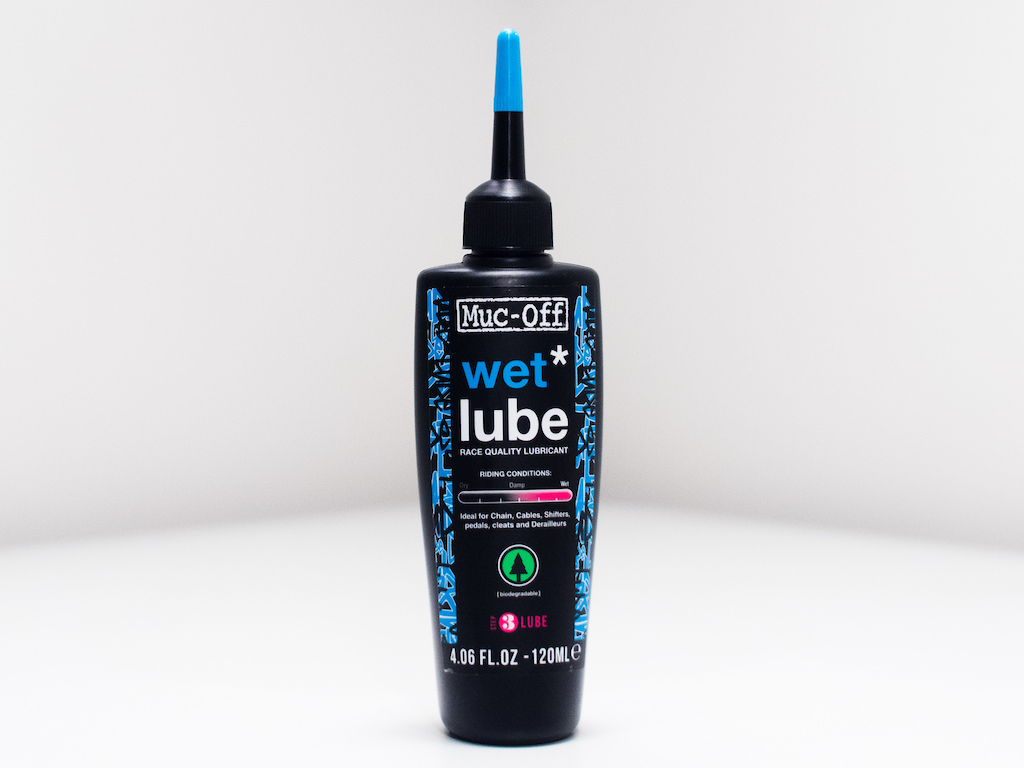
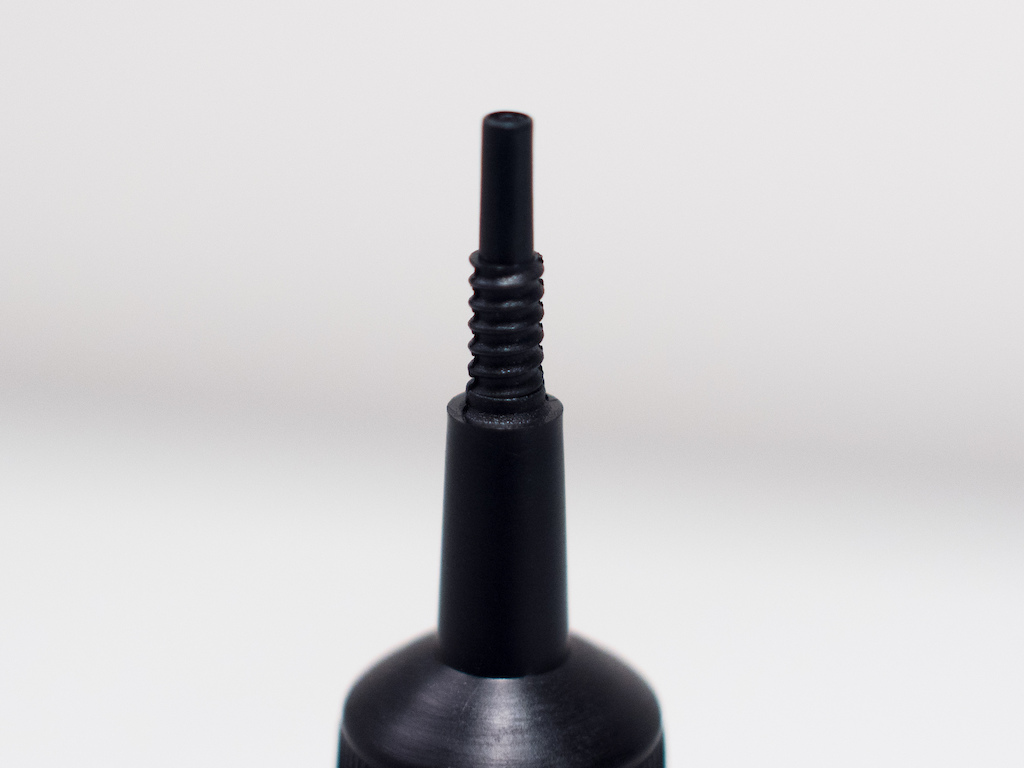
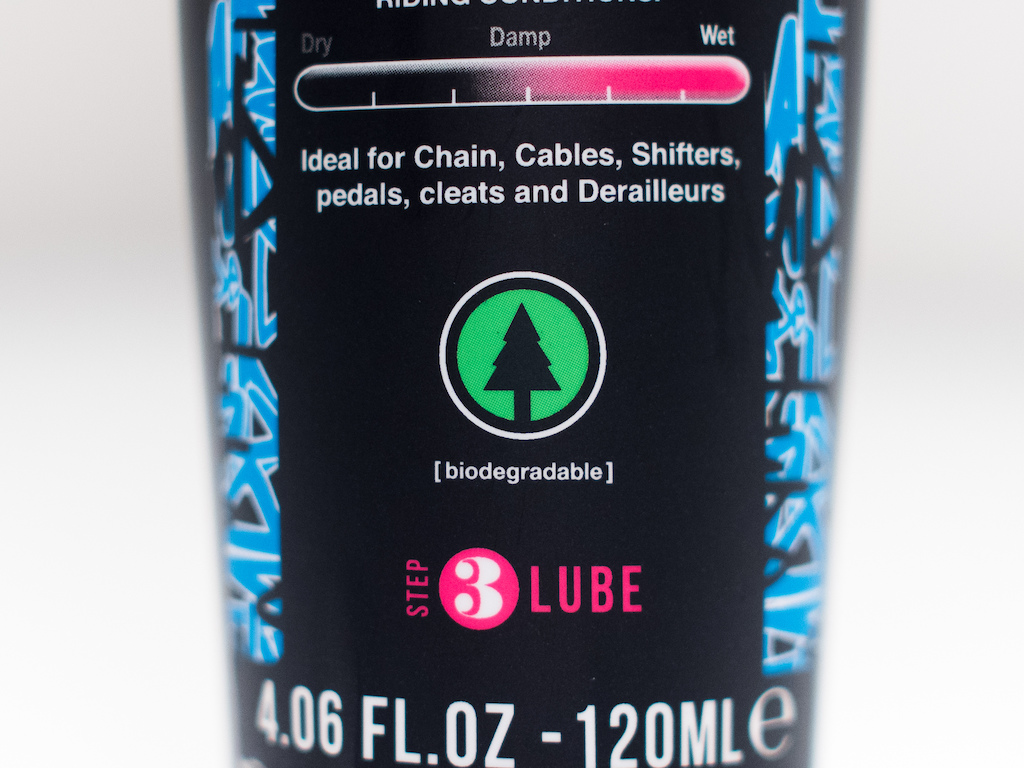

goo.gl/images/4XAVjB
Still more lifespan even in the winter shows me that wetlube is a thing from the past.
May not be a huge deal, but if you think it is, use a bio-based lube. Be mindful of "eco" lubes that contain petroleum or PTFEs!
I do as much as I can wherever possible, it all adds up.
@robdpzero: Barium trioxide and intermediate state pyroxides. When inhaled, even in microscopic dosages, they attack the trans-hypolyphic center inside the thyroid responsible for production of teta-chloro-asgamine trans hormone, which gives our brains ability to recognize complex hidden threats, like corporate conspiracies. They put same poisons in polio and measels vaccines prepping our children to be obedient workers and spenders. If you read about it, it makes plenty of sense.
Comparing plutonium to oil is like comparing apples to sheep.
www.omicsonline.org/open-access/treatment-of-oil-sludge-contamination-by-composting-2155-6199-1000284.php?aid=50352
(Please do not take this as a sign to crap on the trail if you use petro based oil on your chain
Your Dry-Lube for example is 80-90% Ethanol, but you fail to list any information in the physical characteristics about flash point.
Your Suspension oils, SDS lack info on Kinematic Viscosity, (the whole point of buying suspension oil)
Can you provide more information on the products you produce?
Ah c'mon, just have your proper bike race. Assign a date, time, pick your bike and report back here when you're done and the race is decided. Enjoy!
On a reasonable note: who would spend 500-1000£ to travel to a place he has no intention to go and race a dude over an argument over the internet... some people lose touch with reality. Now, we were joking about green-shaming. Comedy flies way over this mans head which means he does not meet too much people he can challenge his views with...
Trail trash on the other hand is a big peeve of mine. Lazy bastards. Someone should shit in their coffee for a week. Maybe use trail dog shit? There's an idea!
kinematic viscosity can be found here: cdn.shopify.com/s/files/1/0641/4023/files/suspension-oil-PDS1.1.pdf?12949137896160710627
When creating SDS sheets, you submit CAS numbers for the contents of the materials used in your product and if there are any toxicological/ecological hazards associated with it then you must list them. If there are none, there is nothing to list. That is why there is not much information.
We try to be as transparent as we can without telling people exactly what our formulas are, for obvious reasons.
Any other questions we are happy to answer, just email us at info@wplbike.com.
The advantage our products have over competitors are in the performance aspect of the product. We are commonly viewed as having a better quality product than other bio-based brands.
We also have distributors in Europe so you can acquire it there and not have it shipped from Canada!
lets race, final call for real men. no talk just action. Shall I continue?
Either way, I'm actually interested in an environmentally friendly tire sealant. I actually kept riding with latex tubes until May last year. A punctured tube I bring home and patch. A tubeless tire that won't seal anymore on a ride requires you to dump the sealant and install a tube. I didn't quite like that idea. Though last May I built a new bike and installed Schwalbe Procore. So technically still a tube but also sealant in the tire. I do appreciate the performance and so far I've never had a puncture that didn't seal. I'm currently using Oko sealant. Last Tuesday my tire picked up a screw, probably from a boardwalk section. I could remove the screw and the tire sealed though the Procore tube was punctured. But I only realized later when my tire was rolling and burping all over the place at the pressures I was used to ride at
...from the staff betting on whether there would be more 'wahhh, you forgot to name my favourite lube' comments or 'heh heh heh, sexual reference, heh heh' comments.
Was able to get it shipped to Cali from Amazon last week.
It's best to start with a totally clean and dry chain, then only use this one - don't lube with random other lubes.
Ideally lube the chain the night before so most of the carrier evaporates and little or no dust attracts to it during the ride.
1) Packaging: Cap easy to open/remove and doesn't break like that damn Finish Line garbage cap. Bottle is semi-flat for transport, durable, and squeezes well. Fluid applies well. Tip glides when it accidentally hits backspinning chain.
2) Odor: I don't want to gag on the smell of my own bike, even at trail speed. I'm talking to YOU, Tri-Flow.
3) Value: All things above being equal, cost per 4oz bottle is a good standard comparison that I appreciate from the article.
sooooooooooo what you're saying is that this post is a paid advertisement?
What does it cost for a post? Is it by the word? By the photo? Let me know maybe I'll buy some posts - ads, content, whatever you call it.
“Let’s just put ‘Enduro’ on the label and call it good.”
& the comments are jokes!
But, there can only be one truly good winter lube that works esp in the uk. And it was developed for chains operating under sea water at silly low temps. Put this stuff on your chain, no rust, no grit or dirt sticking to your chain or cassette. Only thing that will remove it is a detergent or de greaser. That lube is.......purple extreme. My go to winter lube. Nothing else comes anywhere near it IMO.
Mineral spirits: $15 from hardware store
Dilute the air tool oil a bit with the mineral spirits. I ride 12 hours a week and have been using the same bottle of oil for maybe...3 years? Bottle's almost half full still. Applied with an old expensive-bike-lube container. Will never run out of the mineral oil, basically. Mega cheap and never have to re-buy.
Appalachian mountains as in eastern North America, or somewhere else? North American rainforest is on the west coast.
Who writes this shit?
That's actually pretty cool. So many different climate zones on this continent!
Chainsaw oil. £9.99 for 3000ml.
One bottle will last you a decade...
Back in my eco-hippie-trailbuilder days I used veggie oil as bar oil in my poulan saw. It didn't last long, but maybe that also has to do with the fact it was a shitty saw in the first place (albeit free).
It's possible that there's a legitimate argument to be made that the lube that will most extend the life of the chain is the most "environmentally friendly," even if the product itself is not, as it may have a lower environmental cost then producing a new chain. I wouldn't get too excited about the "green" claims of a lube. If they work as well as or better than anything else, then great, it probably helps. But do they? I don't know.
Basically, it's a source of carbon (carbon=energy) for soil bacteria. Problem is that it is hard for them to break down in large quantities because it's a complex chain.
So yeah, I'm skeptical of the "biodegradable" claims in the tiny quantities we're talking about. Oil is biodegradable.
www.dfo-mpo.gc.ca/science/documents/coe-cde/cooger-crpgee/microbes-eng.pdf
Works best during cold Swedish winters to reduce chain friction imo.
Anyone know if there's a better choice out there for when the cold drops below - 20*C?
Hypocrates !
And that is covered by mechanic, have no clue what shop is using, however it works.
Preferably the day after a curry and a few beers.
I'm recycling
So for those interested in an actual review Finish Line wet lube is a great product that I've used riding in all kind of sloppy Swedish conditions as long as I can remember, probably close to 20 years.
I buy 500ml bottles and refill the smalls. Costs 20$ each.. and works amazing with no shit sticking to it
I dont advertise anything just passing on what works.
Some perspective might be in order here, seeing as most trails on Vancouver Island will unfortunately be logged in the near future anyway b/c of the stupid Dunsmuir grants.
Ya of course my tires wear on the trail... I guess because of that I should just start using motor oil to lube my chain? By that argument I might as well stop recycling & composting, buy a giant 6L heavy duty truck for grocery shopping and just f*ck the environment altogether.
Yep, you're right about logging on the island, but again one argument has nothing to do with the other. Plus the two trail systems I use the most are in parks.
My motor oil use started in college, no money so ride by the gas station and grab a used quart of motor oil out of the garbage, wait for the last couple drops on your chain - there used to always be empty quarts in the garbage.
And that was in Humboldt which might not be all the way in PNW but 30+ days of rain in a row and riding almost everyday is close enough for me!!!
The solution to pollution, is dilution, after all, and any trace amounts of oil will be turned into carbon dioxide and water by microbes in the soil.
I want to keep trails as pristine as possible as well, but also realize that in extreme moderation, the forest will be fine.
We've lost many good trails in Nanaimo and near Errington to logging. I think a better fight might be how to stop these trails and public access being lost to logging companies versus microscopic amounts of oil on the ground.
I'd also love to see those areas unlogged, but I'm pretty sure I can fight for that while I keep motor oil off my chain and out of the forest. These two things are not mutually exclusive.
But, if you find that not pouring motor oil on your chain makes it impossible for you to fight logging in those areas... then fine, pour all the oil you want. I'd rather you were able to free up all your mental capacity to fight logging. I wouldn't want you to waste all your time and energy on not using motor oil for chain lube... wtf.
It's a quote from Dr. Sherry Walters, a toxicology expert. (Admittedly, she does deal more with bio-medicine.)
I ride with environmental engineers who do soil remediation at gas stations for work. I personally don't know anything, but they do.
Soil remediation is real. (it can actually be sped up immensely by the inclusion of bio waste in soil at these sites. You can read all about that here in a peer reviewed journal:
www.omicsonline.org/open-access/treatment-of-oil-sludge-contamination-by-composting-2155-6199-1000284.php?aid=50352)
As for the oil on the chain thing, I'm out.
I agree to disagree.
Also, to something I do know something about...logging is not inherently bad. It can be a very useful tool, especially in degraded systems, to catalyze long-term improvement in forest health, habitat, and resilience. It also provides the wood products on which nearly every single human on earth relies. It can also be very poorly executed and cause tremendous damage, which is unfortunately very common and has produced the popular misconception that "logging is bad." Sure, often times no logging might be the most ecologically sound option, but what are you going to do without wood and paper? Please do advocate for ecologically-based timber harvest, properly designed and implemented. Logging is necessary, but we can do much, much better.
Also, that argument is flawed... just because someone drives a gas guzzler doesn't mean they can't or shouldn't contribute in other ways. They may do enough that does much more than cancel out owning a 6L cummins diesel. Maybe they need a certain vehicle for work or other needs... are they supposed to buy another car just to get to the trails to ensure they look like they're walking the talk? People need to less concerned about how they or others look and just do the right thing themselves.
www.youtube.com/watch?v=6RhtiPefVzM
The staggering amount of energy used, carbon and water consumed, and carbon released by mining for oil and then refining it into a usable product is immense.
As for the batteries, after they've done their job in a car for about 10 to 15 years, they are re-purposed for another 10 or more years for other jobs, then much of the material is recycled and re-purposed.
www.bloomberg.com/hyperdrive
An equivalent car driven over the same time-frame (approx 10 to 15 years) will emit 26 to 39 tonnes of carbon dioxide... how well is that currently being recycled? During that time frame an electric car emits zero carbon dioxide.
At each level, currently, electric cars use less resources and consume and emit less carbon... at current technology levels. The divide will only widen as we get better at generating electricity more and more efficiently and get it from more and more green sources and as we find more and more ways of reusing and recycling batteries.
And actually... the shipping industry is going electric as well - www.dw.com/en/are-electric-vessels-the-wave-of-the-future-in-shipping/a-43046309
Lithium is shipped to large factories where it is assembled into batteries, which are then sent to automakers.
Oil is shipped from all over the world to various refineries around the world and then shipped BACK to many of those same places that produced the oil. Once it arrives, it's then shipped again via rail or tanker trucks to regional facilities, then it's finally shipped one more time to local gas stations. The amount of shipping taking place to get the fuel to your local gas station is orders of magnitude greater that the shipping of lithium to a large factory then to a large car maker... those shipments are much less, much larger and so much more efficient.
Then, I could describe how electricity is shipped to the battery... but I think you get how that works. So no, you make an eco-friendly car that gets it energy in a much more eco friendly way than the current infrastructure set up to deliver fuel, which is a huge environmental catastrophe.
Also, oil/gas/diesel/dilbit/bitumen gets spilled during this transit process (offshore drill rigs, tankers, pipelines, rail cars, trucks) and causes huge environmental damage. Yes, it's not a great idea to spill lithium in the ocean, but by reducing the amount the fuel (lithium) needs to be moved (to a factory, then made into a battery) you significantly reduce chances and the impact of spill issues along the chain.
Every way you add it up, it makes sense and is so much better for the environment. There really is no argument against it that holds any water.
The white spirits thins it out a little so in gets everywhere and then evaporates leaving the oil.
I use some leftover 10w60.
I think its called mineral spirits in NA.
i don't ride e-bike!
kettenwixe.com
It ain't even monday!